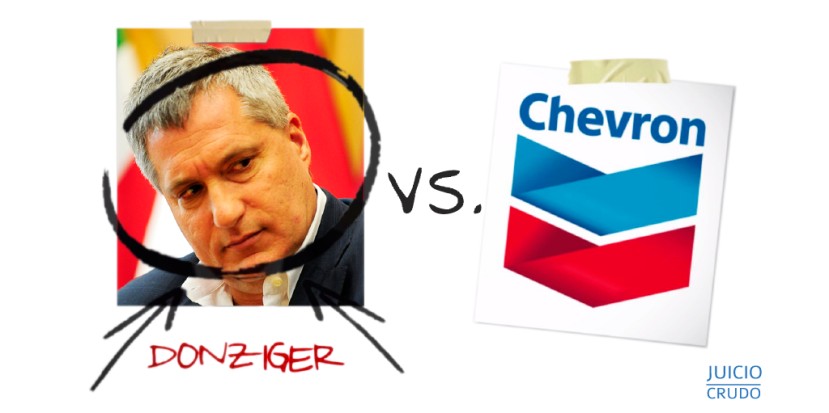
Forbes 14/03/2018

In previous columns, I detailed the appalling behavior that has characterized the search for the causes of oil pollution in Ecuador, following a joint venture between Texaco and an Ecuadorean state-run corporation. Chevron, the corporate successor of Texaco, was held liable for billions in damages by a corrupt Ecuadorean court ruling. That ruling has proven unenforceable and has been condemned in the United States, Argentina, and Brazil. Enforcement efforts in Canada also appear doomed. Disciplinary actions before the Bar of New York are pending against Steven Donziger, the Ecuadorean plaintiffs’ attorney. Read my earlier columns, using links above, to refresh your memory about what might be called l’affaire Donziger. In my opinion the saga reads like a primer on how not to practice law.
The war here is largely over. Chevron has triumphed and what’s left is a kind of cleanup. A big part of that cleanup occurred on February 28, 2018, when United States District Court Judge Kaplan disposed of Chevron’s petition to be awarded court costs. This was pursuant to Judge Kaplan’s substantive ruling in the case, which included the ruling that “that “Chevron shall recover of Donziger and the LAP Representatives [the Ecuadorean plaintiffs], and each of them, jointly and severally, the costs of this action pursuant to Fed. R. Civ. P. 54(d)(1) and 28 U.S.C. § 1920.”
In his February 28 ruling Judge Kaplan begins by summarizing findings we detailed in earlier columns:
“This Court found after a lengthy trial that Steven Donziger and his co-conspirators attempted to extort billions of dollars from Chevron Corporation. They did so by, among other things, violating the Racketeering Influenced and Corrupt Organizations Act (“RICO”), foisting fraudulent evidence on an Ecuadorian court, coercing Ecuadorian judges, illegally writing all or much of the Ecuadorian court’s purported decision, and then procuring the signature of an Ecuadorian judge on a $19 billion judgment against Chevron that the co-conspirators had written, in part by the promise of a $500,000 bribe. This Court found also, and independently of RICO, that Donziger’s actions were wrongful under the common law.”
The Clerk taxed costs in the total amount of $944,463.85, and Judge Kaplan awarded 85% of those costs to Chevron against Donziger personally (and against the Ecuadorean plaintiffs, who of course will not pay them). As has been the case for all of Judge Kaplan’s rulings, the February decision is painstaking. It enumerates and dismisses almost all of Donziger’s objections to the cost award. They number four, essentially:
1) Donziger submitted that payment of costs should be "held in abeyance" because “A Variety of Appropriate Judicial Bodies, both in this Jurisdiction and Others” may consider whether Chevron “and Its Counsel Knowingly Suborned perjury, Obstructed Justice, Violated Numerous Federal Laws, and Committed a Fraud on this Court With Respect to the Testimony of [defense witness] Alberto Guerra”;
2) Donziger asserted that Chevron’s attempted recovery of attorneys’ fees and costs “to attack and to try to disable adversary counsel [would be] in violation of the First Amendment;”
3) Donziger argued that all post-judgment proceedings against him should be moved to another court because the then-chair of the Grievance Committee of the U.S. District Court hadallegedly referred Donziger's conduct to the Disciplinary Committee of the First Department of the New York Supreme Court.
4) Donziger claimed he was too poor to be charged court costs.
Judge Kaplan’s dismissal of these arguments is exhaustive and, to me, highly convincing. I’ll be happy to send his entire ruling to any interested parties (please email me).
Read more here.
Fuente OriginalNotas relacionadas